Lori Stanley Roeleveld's Blog, page 31
October 7, 2017
And Now Thou Shalt Shutteth Thy Mouth
 Every generation has its challenges. Ours doesn’t know when to shut up.
Every generation has its challenges. Ours doesn’t know when to shut up.
I could be my generation’s poster girl for this. No one has ever had to encourage me to expand my thoughts on a topic.
Want to be the “voice of our generation?” Good luck trying to be heard. We emerged from the womb expressing opinions and then, invented ways we can continue speaking from beyond the grave.
So the challenge for us is to clam up when clamming up is what it takes.
I never thought I’d say this, but talking doesn’t solve everything.
My father’s generation has taken criticism (and often rightly so) for being unwilling to talk, express their feelings verbally, or engage in constructive dialog.

All that is good, but somewhere along the line, we started to believe that everything could be solved if we just talked long enough, loud enough, and to the right people.
Not so.
There’s a time for everything under the sun. A time to speak and a time to refrain from speaking.
Sometimes when life is hard and a person is in deep distress, talking about it every moment only adds to the weight of it. Silence can create a sanctuary in a clanging world. Silence can be just the wedge God uses to open stuck doors.
When God led the children of Israel out of Egypt they stood on the banks of the impassable Red Sea and turned around to find Pharaoh’s army gaining on them from behind.
Imagine the sound of thousands of Israelites crying out to Moses, “Have you brought us out into the desert to die?” This was a major freak  out moment for God’s people.
out moment for God’s people.
Moses then speaks saying, “Everybody get a grip! Pipe down a minute!”
Okay, that’s my paraphrase.
The actual verse in Exodus 14:13-14 reads, “And Moses said to the people, “Fear not, stand firm, and see the salvation of the Lord, which he will work for you today. For the Egyptians whom you see today, you shall never see again. The Lord will fight for you, and you have only to be silent.”
And, because our generation invented amazing special effects, you can readily imagine what happened next as God parted the R ed Sea, allowing the impossible – the Israelites cross on foot. The Egyptian army follows suit, the sea closes back around them and the people are saved.
ed Sea, allowing the impossible – the Israelites cross on foot. The Egyptian army follows suit, the sea closes back around them and the people are saved.
Not by words, but by the power of the Living God.
Sometimes we need to speak up, express ourselves, talk things out. Sometimes words are the answer.
But once in a while, we need to stand firm, close our mouths, stand back, and watch God move – in silence.
And Now Thou Shalt Shutteth They Mouth https://t.co/zrpCMqDgWV a time to be silent #powerofsilence #Jesus #refrainfromspeaking
— Lori Roeleveld (@lorisroeleveld) October 8, 2017
October 3, 2017
Be Wretched and Mourn and Weep
 Let’s not pretend we know how to handle what happened in Las Vegas.
Let’s not pretend we know how to handle what happened in Las Vegas.
Christians know the answer to these distressing times isn’t to harbor anger, hopelessness, or fear. But, let me just say it, it’s also not the answer to pretend to God we aren’t tempted in these directions.
Of course, we’re angry! Human life is precious. We aren’t targets in a video game. Each of us is known to and loved by someone – God, if no one else.
And, of course, even those of us who know the reason for eternal hope wonder how to press on when we’re barraged by acts of violence.
Fear is here, loved ones. Never mind, the unknown. In our times, there are plenty of known dangers that make us wish we could build a shelter for our loved ones and hunker down until Jesus returns.

And there’s a quieter fear – a fear that we won’t confess in public and barely dare to acknowledge in the dark, as we turn off the news coverage and switch on a show from the sixties. This personal fear is that we’re becoming numb or hardened or blind or compassion-fatigued, and this doesn’t feel like what Jesus would do. Jesus would care, but sometimes, we. Just. Can’t.
Even when the media put faces to the numbers, interviews their loved ones, tells us their back stories – we can’t find it in ourselves to post another meme telling another city we’re praying. It’s starting to feel like something we just do by the numbers, but we can’t think of anything else, so, there’s that.
This is not a world for the meek (not yet), and Jesus-followers reek of meek.
Here’s the good news: the only ones surprised by our limitations and weaknesses are us. Honestly, we have less perspective on ourselves than we do on God.
My children had a toy poodle years ago. He weighed about eight pounds, soaking wet, but dogs don’t spend much time in mirrors. When a family friend dropped by with his seventy-pound German Shepard, our poodle first tried to scare him off, then attempted to strike up a romance. No idea what the little guy was thinking, but clearly he had no perspective on his own limitations.
 We can be a lot like that poodle.
We can be a lot like that poodle.
We set out to take on the enemy, believing ourselves capable of building great towers, only to find that half-way through our assault, we’re confused. Too confused to continue because now we’re not sure who is our enemy. We feel like small barking dogs so we run off with our tails between our legs and hide from God, ashamed.
Loved ones, we strive when we should rest. We hide, when we should show ourselves as we are. God knows better than we do that we’re worn out and weary. He’s much less shocked than we at our inability to process mass murder.
And our enemy is full aware that relentless, steady assault is effective at numbing our souls, at wearing our faith down to a nub, at inspiring us to build bunkers that block out God. May we not fall prey to his snare.
It is pride that makes us hide.
 But, God has written us the answer in His Word in James where God’s man encourages us to lament.
But, God has written us the answer in His Word in James where God’s man encourages us to lament.
That’s right. Lament.
God’s people are called, at times, to lament. To express great sorrow. To mourn, weep, wail, cry out in loss or horror or regret.
“Submit yourselves therefore to God. Resist the devil, and he will flee from you. Draw near to God, and he will draw near to you. Cleanse your hands, you sinners, and purify your hearts, you double-minded. Be wretched and mourn and weep. Let your laughter be turned to mourning and your joy to gloom. Humble yourselves before the Lord, and he will exalt you.” (James 4:7-10 ESV)
Be wretched and mourn and weep. Thus, sayeth the Lord.
We aren’t called to smile all the time. Forget being positive or looking for lessons before the echoes of the gunfire are even through bouncing off our walls. Don’t rush to assurances, platitudes, or bumper sticker grace that tells us this madness was all for a reason, even if it was.
 That’s not God’s way. He was a man of sorrows and acquainted with grief. To lament is to be like Jesus.
That’s not God’s way. He was a man of sorrows and acquainted with grief. To lament is to be like Jesus.
The prophets, the psalmists, the disciples knew the power of the lament. We need to reclaim it in our private and corporate worship.
To lament is not to say we have lost our faith in God. To lament is to say we’ve exhausted our faith in our own ability to cope and we need our God to supply – courage, hope, comfort, wisdom, renewed compassion, and love that survive mass murder.
Only God. Lamenting is a way of saying “Only You God can sort through what has happened and carry us over to the other side.”
Now is the time Western Christians should turn to our brothers and sisters in persecuted countries where there have been so many fewer protections and ask, how? How do we follow Christ now? How do we reach out to others amid uncertainty, violence, and fear? How have you been doing it? How do you worship?
They will tell us, they know the power of lamentation. They will tell us, Our God does provide. They will say, there is a way to love and to remain tuned into humanity without Netflix or TVLand or building bunkers.
There is freedom beyond the search for safety on this side of glory.
There is freedom when we know our God receives our lamentation as readily as He does our praise.
There is freedom in knowing that to embrace our limitations is to acknowledge we are not little gods, for there is only One.
So to lament, to be wretched and mourn and weep, is to testify about Jesus, in these distressing times.
Our enemy wants us afraid of sadness, but we will show him that our God resides in sorrow, too. There is no place we can go, He is not already there. If we cannot lament for the victims, we can lament the loss of our compassion and our ability to feel.
We won’t get lost in our sorrow for we follow Jesus. He will lead us through to the other side because He has been there and back again.
Let’s not pretend we know how to handle the #LasVegasShooting https://t.co/goNifq1NPW
Be wretched and mourn and weep #Jesus
— Lori Roeleveld (@lorisroeleveld) October 3, 2017
September 30, 2017
My Bumbling, Fumbling Mouth Again
 The wrong words emerge from my mouth all the time.
The wrong words emerge from my mouth all the time.
I have many friends who don’t share my faith. Several, in fact, who believe it’s pure nonsense to believe in Jesus. It’s an open conversation with most of them – none of us hiding our stand.
One girl is given to sarcasm about the church and not a little eye-rolling. Her go-to faith, in rocky times, (besides trusting in the goodness of humanity and the wisdom of her political party) is to knock on wood and cross her fingers.
I joke with her when she does it. “That table is laminate. Does the god of laminate have jurisdiction over natural disasters?” or “Will your fingers need to remain crossed for the duration of the political campaign or is that a time-release finger cross?”
She receives my comments well and has no problem answering with snarky commentary on the foibles of Christians in the news.
Recently, however, my friend faced a serious concern over a family member. I noticed her nervous demeanor and when she told me the worry she was facing, my heart panicked for her.
What I thought was: “How does anyone who doesn’t know God face that kind of fear without Him?”
What I said was: “Oh no! That’s huge, and all you have is that finger-crossing, knock on wood thing!”
It used to worry me, no end, that my mouth was so prone to fumbling the ball, until I learned it’s my heart that makes the calls.
I spent too many years trying to control my words, when God kept pointing to my heart, asking me to expand His residence there. Far too long, I left Him standing in the foyer.
long, I left Him standing in the foyer.
Once I opened the door to other rooms, He filled them with light and the real clean-up He began, reducing my worry about what might fly out the door of my mouth at any given time.
Although in retrospect, I’d find another way to express what I did, my friend took no offense. She knows my heart. In fact, she crossed fingers on both hands, and then looked at me as if to say, “Yeah, it’s really not going to do this time.”
I asked if it would be all right if I mentioned her family situation in my prayers. It was.
My heart hasn’t always had compassion for others, especially for those outside the family of faith. In my younger days, I don’t believe she would have sensed any love behind my words, only judgment or a sense of superiority. I didn’t put that love for her in my heart, God did, when He moved in and got rid of some of the things that made room for it.
And I wouldn’t always have had the courage to offer to pray, especially not to someone who thinks my faith is archaic and evidence of a weak mind. God supplied that courage through years of hanging His Word on the walls of my heart, His home.
Through years of trials, He’s made His presence known to me in such powerful and practical ways, I cannot imagine how others endure hardship without Him. That is the thought that sparked the flash of compassion causing words to erupt in the moment with my friend. How, how will my friend ever endure if her only hope is the god of knocking wood, who is no god at all?
Human language is evolving. We have all kinds of words to describe anxiety, gender, political leanings, and sexual preferences and acts. I wonder if the church is so distracted by this, we’ve reduced our efforts to describe our great God and the excellence of His presence in our lives.
 Of course, it’s important to speak up on social issues, but more important, each generation must find words to describe the wonders of God. I believe a new generation is discovering hymns because the hymn writers did this so well.
Of course, it’s important to speak up on social issues, but more important, each generation must find words to describe the wonders of God. I believe a new generation is discovering hymns because the hymn writers did this so well.
Frederick Martin Lehman is not a man of my times, but his words resonate with me. “Could we with ink the ocean fill, And were the skies of parchment made, Were every stalk on earth a quill, And every man a scribe by trade, To write the love of God above, Would drain the ocean dry, Nor could the scroll contain the whole, Though stretched from sky to sky.” (The Love of God)
Chris Tomlin is a modern worship songwriter who works to describe God. How Great is Our God is a powerful testament to who God is. But, the people we love who don’t know God, won’t likely hear that song, so it’s on us to find ways to describe Him.
The key is that it’s not really about finding the words. It’s more about opening all the rooms of our hearts to God and then throwing open the front door of our mouths without fear.
“For out of the abundance of the heart the mouth speaks.” Matthew 12:34
As we worship this weekend, let us immerse ourselves in God. Let us invite Him to expand His residence in our hearts. Let us remember how good He is, how powerful, loving, creative, and kind.
how good He is, how powerful, loving, creative, and kind.
And when we emerge from worship on Monday morning, let us open wide the doors of our hearts, so others can know Him, too.
My Bumbling, Fumbling Mouth Again! https://t.co/MKNQqo1urv #Jesus #amwriting
— Lori Roeleveld (@lorisroeleveld) September 30, 2017
September 20, 2017
Meeting God in the Mountains
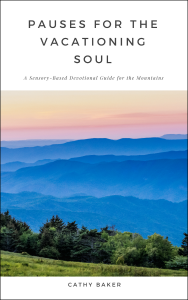 If you follow my blog, you know how highly I value creativity. We serve a creative Creator and are made in His image. I believe that exercising creativity in every area of life is part of the joy of following in His footsteps. It’s rare that I use this space to share an interview with another author, but Cathy Baker is a dear friend, a fellow blogger, and I’m deeply impressed by her creative approach to devotions. I LOVE this series she’s written of sensory-centered devotions to take on vacation. Anyone pioneering new ways for us to dig into His Word and spend time with Him, deserves your notice, so without further adieu, I give you, Cathy Baker!
If you follow my blog, you know how highly I value creativity. We serve a creative Creator and are made in His image. I believe that exercising creativity in every area of life is part of the joy of following in His footsteps. It’s rare that I use this space to share an interview with another author, but Cathy Baker is a dear friend, a fellow blogger, and I’m deeply impressed by her creative approach to devotions. I LOVE this series she’s written of sensory-centered devotions to take on vacation. Anyone pioneering new ways for us to dig into His Word and spend time with Him, deserves your notice, so without further adieu, I give you, Cathy Baker!
Why focus on the senses in your Pauses for Vacationing Soul series?
I’ve seen firsthand what happens to adults when a sensory element like pennies, a crown of thorns, music, or beach sand is added to relevant adult Bible studies. It’s as if a divine-switch flips on in the brain.
For example, I recently received an email from a past participant in our Psalm 139 study sharing how she’s kept her small bag of beach sand by her nightstand stand since our study. Did I mention our study was ten years ago? More importantly, she remembered the why behind the beach sand. She’s experienced difficult bumps in the road over the past several years. Before she goes to bed at night and before her feet hit the floor the next morning, she’s reminded how God has her on His mind more times than there are grains of sand.
In retrospect, I suppose I also added these elements to the studies because I needed them, too. I’m a tactile learner. I remember what someone says for approximately two minutes (just ask my husband) but let me touch, hear, or taste it, and the memory is locked away.
What surprised you the most while researching for this book?
What surprised me the most was the spiritual connection we share with the mountains. There was Mount Ararat where Noah’s Ark came to rest. Mount Sinai, where Moses received the Ten Commandments and Mount Hermon, where the Transfiguration took place, just to name a few. The mountains also speak to God’s character, splendor, strength, and righteousness.
We recently moved to the foothills of the Carolinas. Mountains greet me every morning with one flick of the mini-blind wand. When I see the height and majesty of the mountains outside my window I think of the refuge they’ve provided since biblical times. King David fled to the hills when being chased by Saul and an angel pointed Lot and his family to the hills to escape danger.
And I get it. There are days when I want to escape too. Fears try to slither their way in when I drive due to a past accident. And guilt presses hard on tender spots over past choices I made as a parent of two young boys.
Then I look up. I see a stately, unchanging mountain that reminds me of the bigness of my God. I can run to Him for all things because His love will never change for me. He is the same yesterday, today, and forever.
What would you like your readers to take away from this book?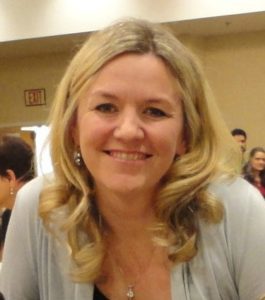
Ultimately, that God wired each of us with senses to see, smell, hear, taste, and touch to connect with Him in tangible ways. He is a God who wants to be known.
We see the face of a newborn child or the moon swiping its way over the sun and we connect with God as our awe-inducing Creator.
When we hear the familiar voice of a loved one or a melodic tune that melts the heart, we connect with One who longs to be heard.
We taste the bounty of the earth and connect with God, our Provider.
When we feel a brush of wind so soft that it catches us by surprise, we connect with One who lovingly extended His touch to the poor, to the cripple, and to the hopeless.
My prayer for the readers (and for myself) is that we will draw closer to God as a result of this little book.
What devotional guides are you working on for the future?
Thanks for asking! The next vacation guide set to release in 2018 is for fellow lake lovers. In addition to the vacation series, a sensory-based celebration series for the holidays is in the works.
You can purchase Cathy’s most recent release, “Pauses for the Vacationing Soul: A Sensory-Based Devotional Guide for the Mountains” now on Amazon.
Cathy

Baker is an award-winning writer and author of Pauses for the Vacationing Soul: A Sensory-Based Devotional Guide for the Beach as well as Pauses for the Vacationing Soul: A Sensory-Based Devotional Guide for the Mountains. As a twenty-five year veteran Bible instructor, she’s led hundreds of studies and workshops. She’s also contributed to numerous anthologies and publications, including Chicken Soup for the Soul, The Upper Room, and Focus on the Family’s Thriving Family. In addition, her poetry can be found in several popular anthologies. She and her husband, Brian, live in the foothills of the Carolinas where she one day hopes to have her very own Goldendoodle.
Subscribe to Cathy’s blog and receive a free e-book, “Praying In Every Room of Your Home”.
Meeting God in the Mountains https://t.co/tpfD4AafMY #PausesfortheVacationingSoul #vacation #mountain
— Lori Roeleveld (@lorisroeleveld) September 20, 2017
September 17, 2017
Wounded in the Woods – A Parable of the Dilemma of the Modern Day Church
 There once was a city that became so evil, so destructive, so influenced by its evil prince who was fascinated by death, the only right response for citizens seeking life, was to move to the forest.
There once was a city that became so evil, so destructive, so influenced by its evil prince who was fascinated by death, the only right response for citizens seeking life, was to move to the forest.
Life in the forest was hard. No one could do it alone, but living in community was challenging for those accustomed to living only for themselves, the way they had in the city. Sometimes there was conflict, but forest-dwellers were committed to life, and the forest was conducive to life, so they worked through their disagreements.
Though it was hard, the forest was beautiful, full of joy, and life there was more as their King had envisioned life, than what passed as life in the city.
Unfortunately, they were not alone, and the forest was not without dangers. The King promised there would be a time to come when that wouldn’t be so, but this was not then.
Sometimes forest-people who were new to forest living were unintentionally destructive. But, if they listened to more experienced forest-dwellers, they matured and came to thrive on forest living. They weren’t as big a danger as infiltrators.
City-dwellers often infiltrated the forest, influenced by their evil prince. They’d set snares and traps for the forest-people. They took joy in the pain they caused and sought to frighten them all back to the evil city to embrace the culture that celebrated death.
joy in the pain they caused and sought to frighten them all back to the evil city to embrace the culture that celebrated death.
One day, a young forest-dweller was caught in a steel trap set by one of the infiltrators disguised as a forest-dweller. Her injury was severe and her wound deep.
Other forest-people freed her from the trap and tried to bind her wounds, but in her pain and fear, she ran from them. She ran until she reached the edge of the forest.
There, she encountered a beautiful shining angel with skin like bronze, who beckoned her toward the city gates. “Come home, my child,” said the angel. “The forest is no place to dwell. The people there are uninformed, lacking in creativity, and they have hard ways no one can bear. Return to the city where you’ll be free, and your wounds will no longer concern you. Most city-dwellers embrace their wounds.”
 The young forest-dweller winced with fresh pain. She had come to the forest seeking life. She knew that death reigned in the city, but maybe, she thought, death is more beautiful than she remembered. She took a step away from the forest, but a wizened old woman with skin the color of mahogany stepped into her path.
The young forest-dweller winced with fresh pain. She had come to the forest seeking life. She knew that death reigned in the city, but maybe, she thought, death is more beautiful than she remembered. She took a step away from the forest, but a wizened old woman with skin the color of mahogany stepped into her path.
“Consider your ways, loved one,” she said quietly.
“Why do you call me loved one?” the wounded one asked, “Look at these wounds, do I look loved to you?”
The older woman bowed at the sight of her wound, moved by her pain. “I call you loved because you are. The King loves you and He understands about wounds. He was wounded for you. He has overcome pain and death. If you remain here in the forest, you will find the only path to life.”
“No,” she protested, “I’m not going back there. The forest is no safe place to be. Life in the city was  comfortable and there, I was free to live at ease. I had some pain, but comforts also abounded there that helped me escape that pain. Do you have that here in the forest?”
comfortable and there, I was free to live at ease. I had some pain, but comforts also abounded there that helped me escape that pain. Do you have that here in the forest?”
“We do not,” said she. “We have found, though, that facing our pain, rather than escaping it, brings true healing to wounds the wise men of the city said would never go away. Life is hard here, there are challenges, and we have an enemy who sets traps, but this is the only place where there is life.”
For a moment, she was torn. She looked from the beckoning angel to the straight-backed old woman. “Perhaps if you would be willing to change the forest, for me. Allow me to go to the city and bring back some comforts to carry along the way. And some devices for protection. In the city, I could purchase armor and then when I return here, I will have all I need to keep me safe. Yes, that’s it. We could bring some of the city-ways here to the forest, and then, I will fear no more.”
Now, the shining angel spoke, “You’re wasting your breath on the old fool. The forest will not change for you. They never care about their wounded. Hurry along with me. We have places designed to look just like the forest, without the hardship. The dark is coming. There’s better light in the city.”
The old woman placed a hand on her arm. It was gentle and strong. “We do care for our wounded,” said she, “but we don’t decide how to live based on fear and pain. That’s the way of the city. We live by the word of the King, because that’s the way to life. I care about  your wounds and if you come, we’ll help you rest and heal. But, if we allow the culture of death a foothold in the forest, it will only become an annex of the city.”
your wounds and if you come, we’ll help you rest and heal. But, if we allow the culture of death a foothold in the forest, it will only become an annex of the city.”
“But, the angel says there are places there just like the forest!” said the wounded one. “What is the harm of me going there?”
The old woman held out two handfuls of berries. “In one of my hands are blueberries, tasty and nourishing. In the other hand is a berry very much like the blueberry, yes? But, it is nightshade. If you choose one, you will live. You choose the other, that is just like it, you will suffer and die.”
The wounded one frowned. “You aren’t listening to me. You don’t respect my wound. My wound happened in the forest . I cannot return there.”
. I cannot return there.”
She took the bronze-skinned angel by the hand, and walked toward the city, clutching her wound.
The old woman sighed. From his tower, she heard the evil prince laugh, laugh until he fell into a spasm of coughs. “Your time is near,” she muttered, as she slipped back into the woods, inhaled deeply of the cool night air, and walked under the stars.
Wounded in the Woods – A Parable of the Dilemma of the Modern Day Church https://t.co/bKOsZbWAGp #Jesus #woundedChristians
— Lori Roeleveld (@lorisroeleveld) September 18, 2017
September 14, 2017
Faith as Blood Sport
 If your father gave you a sword, the first thing he would teach you is to handle it with care.
If your father gave you a sword, the first thing he would teach you is to handle it with care.
“Swords are sharp,” he’d say, with a serious scowl. “They’re sharp for a purpose and you’ll learn to use it for that purpose but you must respect the blade. It’s not a toy. Always respect the blade. Especially because it’s double-edged. Fail to respect the blade and you’re likely to hurt someone else with a swipe and yourself on the back swing.”
As a child, you may defy him in an unguarded moment. Children test limits.
You’d be tempted to see just how sharp the blade is. What can it cut? How much will it hurt? But, most children learn quickly. One cut and you’d show proper caution going forward.
Once you matured, no one would need to remind you to respect the blade.
You’d know your own sword, as if it was an extension of your forearm. You’d have trained and practiced with it. You would have used it in battle.
battle.
It would travel with you and rest with you. Your sword would be your essential possession. Your inheritance. Your connection with your father.
Your defense against the enemy. Protection for your loved ones. You would never take it for granted.
Our culture is rife with immature children wielding swords like armed babies, creating havoc and damage for everyone in their path.
Our Father gave us a powerful sword.
“For the word of God is living and active, sharper than any two-edged sword, piercing to the division of soul and of spirit, of joints and of marrow, and discerning the thoughts and intentions of the heart.” Hebrews 4:12 (ESV)
“In all circumstances take up the shield of faith, with which you can extinguish all the flaming darts of the evil one; and take the helmet of salvation, and the sword of the Spirit, which is the word of God,” Ephesians 6:16-17 (ESV)
 He wants us to treasure it, train with it, and handle it properly. It is for our defense against evil. It can slice through deception and darkness like a light saber. It is a believer’s essential weapon, our comfort, a deep connection with our Father.
He wants us to treasure it, train with it, and handle it properly. It is for our defense against evil. It can slice through deception and darkness like a light saber. It is a believer’s essential weapon, our comfort, a deep connection with our Father.
But, we must respect the blade.
God’s Word isn’t meant to be a dart we toss at another for sport, blog to blog, sound-bite to sound-bite, sermon to sermon, aimed at this one’s argument or that one’s public stand.
Needless sparring slices the victim of the blade and stings the rest of the believing church on the back swing. It’s petty. It’s ugly. Like watching a married couple argue in public. It serves no one.
The Bible isn’t meant to be a club with which we pummel our enemies or batter those who have fallen prey to the deception of the age. Imagine Luke Skywalker using a light-saber to torment an old woman who disagreed with his politics.
Now, healthy debate between well-matched swordsman is good training for both, but it is undertaken with respect, restraint, and skillful reverence. It doesn’t look like a thug bludgeoning a victim in a dark alley.
These are challenging days. Challenging. Satan pumps deception into the atmosphere like an invisible gas. We must proceed with courage and caution.
Family sticks together. Who would ever want to join a family who tear into one another in public? Who would ever want to join a family who beat one another up in front of their enemy? Jesus said they will know we are His disciples by our love, not because we out-versed someone with Bible passages.
Our Father has given us a sword.
The enemy may incite people to throw us into the ring together and cheer for us to fight, but we don’t have to give them a show. Haven’t you noticed that these days, Christians are thrown to the lions on Facebook and CNN? Nothing has changed, really, except they’ve reinvented the Colosseum and the audience watches on the big screen.
Swordpla

y is only a sport in times of peace and we, loved ones, live in a time of war. Swordplay is serious business. Thumbs up or thumbs down from the stands, we are in the ring together. Our Father would never have us slice in one another with the weapon He crafted for our protection.
Our faith is no blood sport. In these challenging times, let us conduct ourselves with honor, especially towards those in the family of Christ. Keep your sword with you always, but respect the blade.
Faith as Blood Sport https://t.co/72R0Am0Osy when Christians disagree #Jesus #Christians #amwriting
— Lori Roeleveld (@lorisroeleveld) September 15, 2017
September 12, 2017
Checking Your Old Bag at the Gate
 Whenever I encounter older people who are cranky, unpleasant, or critical, I wonder how I’m going to avoid becoming just like them. Recently, I stumbled on part of the answer.
Whenever I encounter older people who are cranky, unpleasant, or critical, I wonder how I’m going to avoid becoming just like them. Recently, I stumbled on part of the answer.
I took a quick trip south for a wedding. My luggage was very important – the outfit for the wedding, shoes, hairdryer, as well as clothes for the mugginess awaiting me in North Carolina. So important, in fact, that I refused to check my bags, carrying them with me on the plane to insure their arrival.
Just as the plane lifted off after making my connection, I dumped an iced tea into my lap, destroying the white pants on which I’d based the weekends’ outfits. This elevated the remaining luggage to an even more precious status and I made sure to keep careful track of it all the way to the hotel room.
Flying back was a completely different experience. The event was over. The weekend behind me. I packed hastily. I relinquished my luggage to the airline staff without hesitation. I relaxed in the waiting area without a thought to where my possessions would land or when.
The difference?
This time, I was heading home.
My nerves were calm because no matter what happened with my suitcase, I would still have everything I needed when I arrived. I had no worries about my appearance because I knew those awaiting me were waiting for ME, not the impression I would make. My clothes don’t matter to them – I do. Even if we encountered trouble and I dragged myself off the plane hungry, wrinkled, and exhausted, I’d be welcomed with open arms.
don’t matter to them – I do. Even if we encountered trouble and I dragged myself off the plane hungry, wrinkled, and exhausted, I’d be welcomed with open arms.
While the flight to the event was pleasurable, the journey home was a complete joy. I wasn’t worried about arriving on time, keeping track of my bags, or making any kind of appearance. I was entirely focused on the journey, on my companions, and on looking forward to the destination.
This is how I want to experience the rest of my years on the planet – traveling light because I’m heading home. Focused not on worrying whether I have everything I need, on my appearance, or on carrying my bags but focused, instead, on the journey, my companions, and on the thrill of my final destination.
I want to check the spiritual baggage that weighs me down – sin, self-consciousness, other people’s judgments and expectations, fear, anxiety, and the constant grasping for more so characteristic of us in modern times. I want to check it all and travel, unencumbered, for this leg of the journey – knowing that if that bag gets lost, I’ve no need to fear because everything I need is waiting for me at home.
I realize I’ve spiritualized a common human experience, but God spoke to me on that trip home about what a model that can be for me in these later years of my life. The early years are so full of acquiring things – skills, knowledge, education, experiences, someone to love, somewhere to live, something to do, something to drive, etc. To many people, the years after midlife seem to be more about loss, but I see them as more about letting go; about checking my bags and enjoying the journey because everything I need awaits me there.
 Packing in my hotel room, I was struck at how many things that felt essential for the trip down now felt completely, unnecessary for the return trip. I sense that same thing more and more as I’ve ventured into my fifties, and as my children have reached adulthood. I’m releasing what I once thought I needed to live free, relaxed, and focused on only what will matter in that eternal space awaiting me.
Packing in my hotel room, I was struck at how many things that felt essential for the trip down now felt completely, unnecessary for the return trip. I sense that same thing more and more as I’ve ventured into my fifties, and as my children have reached adulthood. I’m releasing what I once thought I needed to live free, relaxed, and focused on only what will matter in that eternal space awaiting me.
Escaping the fate of becoming a cranky old bag may be mostly a matter of refusing to carry all that baggage around with us.
How about you? What bags are you checking for the journey home? What weighs you down that could just as easily be handed over to the airline staff? Are you ready to focus on the journey, your companions, and the open door of home?
If not? What’s holding you back?
Or have you not heard in Jesus’ own words the truth awaiting us: “Let not your hearts be troubled. Believe in God; believe also in me. In my Father’s house are many rooms. If it were not so, would I have told you that I go to prepare a place for you? And if I go and prepare a place for you, I will come again and will take you to myself, that where I am you may be also. And you know the way to where I am going.” Thomas said to him, “Lord, we do not know where you are going. How can we know the way?” Jesus said to him, “I am the way, and the truth , and the life. No one comes to the Father except through me.” John 14: 1-6 (ESV)
, and the life. No one comes to the Father except through me.” John 14: 1-6 (ESV)
It’s a long, long journey, but the best part, the one we can enjoy, is the journey home. So, check your bags, loved ones, and travel easy.
Check your old bag at the gate! https://t.co/IajOHQZLr0 How to travel light into your senior years #Jesus-followers age well #SeniorLiving
— Lori Roeleveld (@lorisroeleveld) September 12, 2017
September 9, 2017
WHO IS THIS UNCIRCUMCISED PHILISTINE, WHO DARES DEFY THE ARMIES OF THE LIVING GOD?
Maybe you don’t need to hear that, but I need repeated reminders.
You are not God, and that is okay because you’d make a lousy one compared to the God who is!
Here’s another truth I need to tape to my mirror:
You are not every part of the Body of Christ.
You are one part.
The whole work and calling of the church includes you, but it does not rest on you alone.
We’re facing it right now, aren’t we loved ones?
Trouble arriving from every direction – fire, flood, wind, storm, quakes, rumors of war, conflict at home, threats from abroad, division, hostility, and all this served alongside the personal ongoing challenges we each were already facing.
If you don’t feel small and limited, you’re just not paying attention.
That’s where I found myself mired this week, reflecting too much on the shortness of my faith compared to all the giants calling out the armies of God.
Then, David’s words came to my mind. “who is this uncircumcised Philistine, that he should defy the armies of the living God?” 1  Samuel 17:26b
Samuel 17:26b
David’s faith and audacity made me smile, reminded me there’s no shame in being small.
And didn’t our God create the wind, rain, fire, quakes, and storm?
And didn’t He say there would be signs in the sky, disruptions, eruptions, earth bursts?
And didn’t He warn us there would be wars, conflicts, threats, divisions, and persecutions?
And didn’t He tell us He will never leave us?
And didn’t He say He’s given us everything we need for life and godliness?
I don’t need to be big enough. I just need to remember I belong to Him.
In fact, when I feel small, He says, YES! At last! Someone I can work with (though I imagine He uses proper grammar.)
And the whole world is not my concern alone. This is my Father’s world.
His church covers the earth. I may be cowed by the giants barreling in from sea, from air, from foreign tyrants, and cancerous cells, through hateful words and treacherous cruelty, but to Him, there is nothing here to fear. He is God and there is no other like Him.
 In fact, He pointed that out centuries ago when the Israelites quaked in their sandals at the trouble that swarmed like locusts. God pointed out, that while other nations carried their Gods around when they were on the move; He carries His people.
In fact, He pointed that out centuries ago when the Israelites quaked in their sandals at the trouble that swarmed like locusts. God pointed out, that while other nations carried their Gods around when they were on the move; He carries His people.
There is no God like Jehovah. He carries us. When the winds blow, the missiles launch, and cruel words fly remember there is no shame in being small, for that is how we were designed. All of this trouble will fall with a single stone aimed squarely at its forehead.
These storms are uncircumcised Philistines – no match for the armies of the Lord.
These times are uncircumcised Philistines – we will stand even as they fall.
These wars, diseases, divisions, and dreads are uncircumcised Philistines and they do not recognize that behind these tiny warriors stands a God like no other who has already claimed their defeat.
So, break away from the news coverage today to meditate on our Great God.
“Listen to me, O house of Jacob, all the remnant of the house of Israel, who have been borne by me from before your birth, carried from the womb;
Even to your old age I am he, and to gray hairs I will carry you. I have made, and I will bear; I will carry and will save.
“To whom will you liken me and make me equal, and compare me, that we may be alike? Those who lavish gold from the purse, and weigh out silver in the scales, hire a goldsmith, and he makes it into a god; then they fall down and worship!
They lift it to their shoulders, they carry it, they set it in its place, and it stands there; it cannot move from its place. If one cries to it, it does not answer or save him from his trouble.
“Remember this and stand firm, recall it to mind, you transgressors, remember the former things of old;for I am God, and there is no other;
I am God, and there is none like me, declaring the end from the beginning and from ancient times things not yet done, saying, ‘My counsel shall stand, and I will accomplish all my purpose,’”
counsel shall stand, and I will accomplish all my purpose,’”
Isaiah 46:3-10 ESV
Praying today for all who feel small in the face of giants. Shout with me, will you? Into the wind, the rain, the quaking earth, the threats from abroad, the fights from within, to disease, to death, to division, to pain, stand your ground and shout with me, ““who is this uncircumcised Philistine, that he should defy the armies of the living God?”
It is the giants whose time has come. Ours is eternal.
“Who is this uncircumcised Philistine who dares defy the armies of the living God!” https://t.co/EV3ynzJSJx #Irma2017 #wildfires #Jesus
— Lori Roeleveld (@lorisroeleveld) September 9, 2017
September 4, 2017
What God did on My Summer Vacation
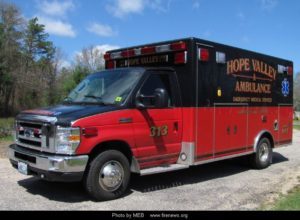 “You need to get to the hospital. Your dad fell.”
“You need to get to the hospital. Your dad fell.”
Three weeks ago, those words altered my August, finishing off a summer that will go in the record books as my worst.
It had already been the hardest summer of my adulthood. I’m working on a book I’ve dreamed of writing, but it’s the hardest one I’ve ever tackled. We’re slammed at my day job. Short-staffed, but no shortage of families in crisis.
(Add mine to the list.)
In July, I was on my front porch writing when Dad slowed his car and yelled out the window, “Mom’s been in a car accident by the Dunkin Donuts!”
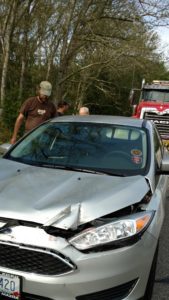
We arrived at the second Dunkin Donuts on her route to find a tractor-trailer carrying an excavation truck had backed into her tiny car. Physically, mom’s back was injured, but she walked away. Emotionally, the incident triggered acute post-traumatic stress disorder, and mom’s still reeling with the effects.
A couple of weeks later, Mom and Dad’s much-loved dog, Hercules, a little Schnauzer who brought them  daily joy, was laid to rest. Heartbreaking how dear a pet can become and how searing the loss of pure, unconditional love.
daily joy, was laid to rest. Heartbreaking how dear a pet can become and how searing the loss of pure, unconditional love.
Through all this, we frequently remarked at the miraculous improvement in my dad’s health.
February 2015, the doctor gave him six-months to live if he didn’t change his life – maybe two years if he did. Dad made the changes and we’ve rounded the bend from the two-year mark, celebrating his health at every opportunity.
Then, the fall. To distract himself from grief over Hercules, Dad decided to paint the bulkhead doors leading down to their basement stairs. All at once, he was light-headed, then turning, then falling backward down eight wooden stairs, bouncing off concrete, into the closed basement door.
This was a huge blow to us all. The emergency room felt surreal as we tried to get our bearings and absorb the shock. Dad suffered, not only with the pain, but with the unfairness of it all. I silently pleaded with God to supply words of comfort. Most of them fell hollow seeing how serious his injuries were.
News came in spurts. Cuts and contusions. A T12 vertebrae fracture. With his spine fused above and below, surgery was required to prevent a catastrophic spinal cord injury. Anemia. Low platelets. Now, the surgery would be high risk.
There have been times in the past weeks when I felt my head might explode.
Like when my mom awoke unable to walk from vertigo the day before my father’s transfer to rehab, necessitating my husband to stay with her, while I stayed with dad. Or when my father experienced flashbacks related to his own post-traumatic stress disorder from a fall through a mill floor on fire call in 2014.
Or when the strain of so much intense family drama caused tempers to flare, unkind words hurled like stones, or tears to fall, or dry heaves the doctor diagnosed as anxiety.
And through it all, there’s the day job. Bills. Book deadlines. Church meetings. Meal prep. Decisions. Breakdowns in the hospital bathroom or driving home. And Charlottesville erupts. Houston floods. North Korea builds a bomb. Irma aims at loved ones.
Ka-BOOM!
To say I didn’t feel God’s presence is to imply that I felt anything, except tension interrupted by occasional bouts of abject fear. Sleep deprivation diminishes your emotional repertoire.
I heard no whispers. Felt no divine arms. Sensed no special bubble wrap reserved for the redeemed.
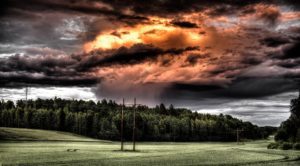 But, God was there. This I knew with the knowing that comes from years of knowing Him.
But, God was there. This I knew with the knowing that comes from years of knowing Him.
In Jesus, all things hold together – including me.
And I acknowledge little miracles – how does an eighty-one-year-old man tumble backward down eight stairs and not suffer greater harm? Not hit his head? Emerge alive?
How is it my son was walking up the driveway in time to hear his grandfather cry out for help?
He made it through the high-risk surgery and already, he’s walking, talking about coming home, recovering his old self.
Plus, the arms of the church, both near and far, encircled us – with care and prayer.
Our adult children showed themselves to be of the age where they check in on us – have we eaten, are we okay, how can they help? We’ve catapulted to a new phase of family.
Blog readers and Christian writers sent cards to cheer my dad. Messaged me to hold on. Assured me that God knew all this would occur and when.
Not because I’m driven, but because writing is God’s gift to me. This is where He meets me and so often, where I become conscious of Him, and how He’s been with me through it all.
Now summer is gone (whew) and I love the fall. I’ve never been fond of summer or heat, much less with hospitals, trauma, fear, and death. But, this is life this side of glory.
We argue. We suffer. We face trauma, loss, pain, division, heartache, catastrophe, and death. We are so small to face down flood and fire and wind and relentless rain and tyrants and war. But, He sees us small and rains down mercy on our burning souls.
Thank you for your prayers. They were a kindness and a balm.
I know so many of you suffer far greater things than my small summer. You are in my prayers.
I’ve asked a couple of friends to guest post in the coming weeks as I complete, The Art of Hard Conversations, and continue to support my parents. Thank you for your patience with me.
 I’m looking forward to watching God over-ride my PTSD, transforming it to Post-Trial Strength and Determination to live in the reality of His kingdom come, not the history of the fall.
I’m looking forward to watching God over-ride my PTSD, transforming it to Post-Trial Strength and Determination to live in the reality of His kingdom come, not the history of the fall.
The truth is, with Jesus, we can all overcome the Fall.
**All glory to Jesus and much gratitude to the first responders, Hope Valley Ambulance Squad, Hope Valley/Wyoming Fire District, and the firefighting community in New England who’ve come around to support my dad. To the medical staff at South County Hospital and Scallop Shell Rehab Center. To my supportive and understanding supervisor and coworkers. To our church family and local friends. To my children for growing up so well.
What God did on My Summer Vacation https://t.co/2LxxhBq8He #MiracleMonday #Jesus #firefighters how we survived the fall
— Lori Roeleveld (@lorisroeleveld) September 5, 2017
September 2, 2017
The Stuff I’m Not Telling You
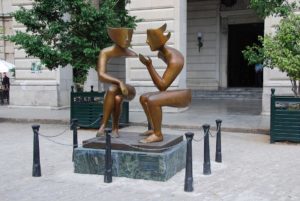 You have to really listen to people.
You have to really listen to people.
Not only what they say, but also what they don’t say.
The whole story is told, not only in what is said, but also in what is held back. Take this blog, for example.
Readers sometimes applaud my transparency. I do try to be that, but honestly, the best I often manage is selective transparency.
Too often, I write from my comfort zone. Admittedly, I have a really wide comfort zone for transparency, but there are topics you don’t see here.
I still have broken places: my childhood, my marriage, my bank account. Not a lot of transparent posts about those things. You should pay attention to that. God does.
This is how God works: Knowing my broken places, He moved me into a run-down house we can’t afford, that my husband chose, despite my objections, directly across the street from where I grew up.
He aims straight at my brokenness.
How He uses this mess to heal me and glorify Himself – now that’s the post you want to read, but I don’t want to write.
Why show you my mess? Everyone cleans up for company, right? It’s not normal to invite people to sit beside the dirty dishes and the  laundry.
laundry.
But Jesus, undaunted, knocks until I invite Him in for coffee. (Yes, of course He drinks coffee. Black, like Jethro Gibbs. What did you think He drinks? Wine coolers?)
He’s not put off by my broken places. He pushes me too show them to others – not because my messes are particularly fascinating (they’re not) but because when He transforms them – that is a thing of beauty.
Still, I wrestle with Him. I’d really prefer to write about your pain – not mine.
My pain is boring. Writers avoid clichés, I don’t want to be one. I want to make you laugh and think me witty, insightful, and unusually close to God.
There’s nothing witty about my check book at the end of the week, or my marriage in the middle of a fight.
You know when you’re sitting in church and the pastor says that one look at a person’s checkbook gives him more insight into their spiritual life than the record of their church attendance? Yeah, I just want to crawl out that day, curl up in a ball, and quit playing. (Although, mine probably says I am deeply aware of my dependence on God, and spend much time on my knees.)
My marriage – well, it’s just a real marriage. We have amazing nano-seconds of closeness when we believe we’re soul mates, interspersed with vast epochs of time when dear friends hand us business cards for therapists and lawyers.
The story of our marriage can be found in Ezekiel 37. I keep looking for anniversary cards that contain these verses with an appropriate drawing: “The hand of the Lord was on me, and he brought me out by the Spirit of the Lord and set me in the middle of a valley; it was full of bones. He led me back and forth among them, and I saw a great many bones on the floor of the valley, bones that were very dry. He asked me, “Son of man, can  these bones live?” I said, “Sovereign Lord, you alone know.” Ezekiel 37:1-3
these bones live?” I said, “Sovereign Lord, you alone know.” Ezekiel 37:1-3
I can write about marriage without bleeding right now because the bones of our relationship are resurrected again. We’re hoping to make this renewal last to our 30th anniversary next May, but we’ll probably experience marital osteoporosis sometime around New Year’s.
And my childhood. Wow. There’s nothing more humdrum than sad childhood stories, right? Boo-hoo. I didn’t get everything I needed, and now the little girl inside me is still searching. That’s the kind of transparency that makes people cough softly and look away, hoping you’ll spare them the details.
But, that’s me. It’s as much a part of who I am as the writer who makes you laugh, and think. Despite being fifty-six, somehow I’m still mostly six-years-old, looking for acceptance, attention, and a place to belong.
So I ask Jesus, what should I write? And He says, “Write about the broken places.”
And I say, “Seriously. That’s not sexy – not the stuff of blog posts that get shared.”
And He says, “You miss the point. The greatest stories of your life are when I’ve met you in those places of brokenness, and done My best work.”
He’s right. Which is why I’m writing an entire book about how to have hard conversations and filling it with the one’s I’ve had and flubbed, and then had again.
But as much as I talk about Jesus, what I really want is for you to think I’m something special. I want to give Him glory, but it’s all mixed up with wanting to stand beside Him in the spotlight and get noticed, too.
mixed up with wanting to stand beside Him in the spotlight and get noticed, too.
I’ve always felt like a stained-glass window. When the light is shining, it’s a thing of beauty, a work of art. But when there is no light, it’s a dull, lead-lined, black thing that doesn’t even make a good window.
Jesus is the light that transforms me into something worth seeing. I have the potential for beauty, but not until I’m filled with His light.
He’s not at all put off by my brokenness. He looks at it and says, “I can totally work with that. Let’s show other people how you’re broken so they can see what I do with it. Then they’ll know what I can do with them.”
(I don’t answer Him. I stare at Him like He’s crazy, and He knows what I’m thinking anyway, so I don’t need words. Then I sigh really loud and start typing.)
 I am like anyone you’ve ever met or find in the mirror. Jesus is the One you’re here to see.
I am like anyone you’ve ever met or find in the mirror. Jesus is the One you’re here to see.
It’s in the places I am silent He speaks the loudest.
In the places I am broken, that He shines. All I can give you is a blog post and a glimpse of my broken places. He can give you all you’ll ever need.
If you offer Him your brokenness – He can use it twice. Once, to testify to you of His power and love and then, to testify of it to others.
What are you holding back? Might God use it in the telling?
The Stuff I'm Not Telling You https://t.co/vMw9zfRe8t ministry of transparency #weareallbroken #Jesus #amwriting the healing is in the tale
— Lori Roeleveld (@lorisroeleveld) September 2, 2017
https://loriroeleveld.com/wp-content/uploads/2017/09/Running-from-a-Crazy-Man.mp4






